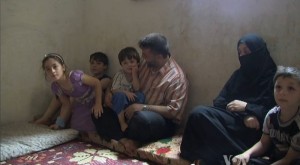It’s over a year ago now since I let the ‘Critical Thinking’ series of blogs lapse (the last one being no. 15, the ‘Texas Sharpshooter Fallacy’). However, that wasn’t at all because I’d run out of interesting material to talk about. Inspired by work I’m doing at the moment on Critical Thinking issues and the David McRaney podcast, I thought it might be time to revive and continue this series. A full list of the previous instalments can be found here.
The Appeal to Ignorance is the claim that you can justify a belief as completely true or false just by pointing out a lack of information. It’s assumed that because we are ignorant about the evidence for or against a particular claim, it must therefore be true or false. An easy classic type of example would be the ‘Nessie Argument’:
Nobody has yet disproved the existence of the Loch Ness Monster. So the Loch Ness Monster must exist.
This kind of example might be reasonably obvious to many people as fallacious. However, I am often astonished at how widespread and, indeed, institutionalised appeals to ignorance often are. The most common arguments for atheism, and for philosophical idealism, are usually based on an appeal to ignorance. Here’s an example of each:
The existence of God cannot be proved. All the supposed proofs of God’s existence, for example based on religious experience or design, are based on doubtful assumptions. So we must conclude that God does not exist.
The ultimate existence of material objects can never be proved, because all we have access to is our experience of those objects. Thus there can be no material objects out there, only minds and mental constructions.
These are also examples of what I have sometimes called ‘sceptical slippage’. People begin with a justifiable doubt about something, but then they turn that doubt into a negative claim, in many cases apparently not noticing that they have gone from one to the other. But the distinction between uncertainty and negative claims is a large and important one with lots of practical implications. For example, those who go around stating that belief in God is ‘false’ cause a lot of unnecessary conflict that would probably not be created by those who merely point out that we don’t know whether or not God exists (especially when religions themselves often offer mystical perspectives that underline this point).
These sorts of examples show how important avoiding the appeal to ignorance is in Middle Way Philosophy. If we are to apply the Middle Way carefully and reflectively, we need to be willing to take a critical stance towards traditions that may be trying to avoid positive absolutes, but have failed to avoid negative absolutes after falling into an appeal to ignorance. That’s the thing that seems to divide Middle Way Philosophy from naturalism, which on most interpretations rejects the ‘supernatural’ as false because it is uncertain.
Like most such unjustified assumptions, the appeal to ignorance also potentially has an equally erroneous opposite: that is the assumption that due to ignorance we cannot make even provisional assertions. not only can we not justify absolute assertions based on ignorance (whether positive or negative), but we also cannot justify the avoidance of assertions. A degree of ignorance is our embodied state, but it’s only a degree of ignorance, not an absolute ignorance. We can always assert that based on our experience so far, subject to amendment from further experience, such-and-such is the case. For example, I can assert that the sun will rise tomorrow. I am not prepared for the rapidly plunging temperatures and planetary ruin that would occur if it didn’t, even though I can’t be absolutely certain. Practically speaking, I am justified in relying on that very high probability.
Exercise
Are these arguments guilty of an appeal to ignorance , or are they just taking our ignorance reasonably into account?
1. We don’t know when civilisation is going to fall apart, so we should all stockpile food and weapons to be ready for that eventuality.
2. We don’t know when the next outbreak of ebola will occur, and a worldwide pandemic has only been marginally headed off for now. Every child in the world should thus be given a vaccination against ebola.
3. You never know when a disabling virus is going to strike your computer. Back up all your files in at least two different places.
4. We don’t know for sure that the tooth fairy does not exist, so it’s quite OK to tell your children stories about the tooth fairy.

